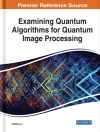A guide to the challenges in making virtual reality, reality
The Metaverse, a version of the internet in which online interactions take place in real time within fully realized virtual spaces, has been promised as the next frontier in wireless communication. It has drawn huge investment from Silicon Valley and widespread media attention. However, the technologies required to make the Metaverse a reality are still in their infancy, and significant barriers must be overcome if this massive step is to be taken.
Realizing the Metaverse provides a systematic overview of these challenges and their likely solutions. Focusing on five key areas—infrastructure, access, intelligence, security, and future developments—it offers one of the first comprehensive, formalized treatments of the Metaverse as a nascent reality. It promises to be an integral contribution to the future development of Metaverse technologies.
Realizing the Metaverse readers will also find:
- An editorial team with extensive research experience in the field
- Detailed discussion of topics such as augmented reality (AR) adaptation, haptic feedback, artificial intelligence, and more
- Enlightening discussion of open questions and future prospects for research
Realizing the Metaverse is ideal for graduate and advanced undergraduate students in wireless technology, network communications, and related fields, as well as for researchers and industry professionals involved with the Metaverse or adjacent technologies.
Om författaren
Wei Yang Bryan Lim, Ph D, is a Wallenberg-NTU Presidential Postdoctoral Fellow, Nanyang Technological University, Singapore. He has received Best Paper Awards from the IEEE Wireless Communications and Networking Conference and the IEEE SPCC Technical Committee, and regularly serves as a reviewer for leading journals.
Zehui Xiong, Ph D, is an Assistant Professor at Singapore University of Technology and Design. He has published extensively, won many prestigious career/paper awards, and served as the editor for many leading journals in the areas of Internet of Things, edge computing and intelligence. He serves as the Associate Director of Future Communications R&D Programme. He was featured on the list of Forbes Asia 30 under 30 in 2023.
Dusit Niyato, Ph D, is a Professor in the School of Computer and Engineering, Nanyang Technological University, Singapore. He is an IEEE Fellow and serves as editor of numerous prestigious journals, including as editor-in-chief of IEEE Communications Surveys and Tutorials.
Junshan Zhang, Ph D, is a Professor in the Electrical and Computer Engineering Department at the University of California, Davis, USA. He has researched and published extensively on information networks, data science, 5g, wireless communications, and related subjects, and currently serves as editor-in-chief for IEEE Transactions on Wireless Communication.
Xuemin (Sherman) Shen, Ph D, is a University Professor in the Department of Electrical and Computer Engineering, University of Waterloo, Canada. He has published extensively on network resource management, wireless network security, Internet of Things, 5G, and more. He is a Fellow of the Engineering Institute of Canada, the Canadian Academy of Engineering, and the Royal Society of Canada, among others.












